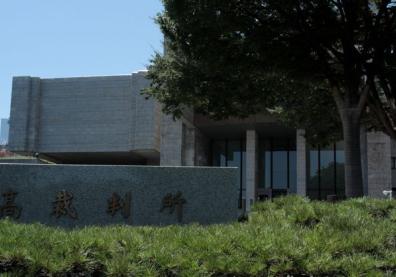The exercise of judicial power by Japan's Supreme Court

The creation of Japan's Supreme Court by the 1946 Constitution represents a real breakthrough: charged with controlling the constitutionality of norms and ensuring the protection of fundamental rights and freedoms, this institution was destined to occupy a leading role in the post-war era. Yet today, the Supreme Court is criticized by foreign and Japanese observers alike for its "conservatism" and "passivity". A priori, these qualifiers seem to be justified, since in over seventy years of existence, the Supreme Court of Japan has in fact handed down only a very small number of decisions pronouncing the unconstitutionality of a norm. What's more, this institution does not seem to be in a hurry to bring about the change in mores that would enable better protection of fundamental rights.
However, no author has succeeded in proposing a cause that would explain this observation, which is intended to be objective. The reason lies in the criticism of the Supreme Court's "passivity", which generally reveals a bias on the part of observers. In reality, the Supreme Court is the heir to a legal history that has shaped a particular conception of the role of the Japanese judge, which this work sets out to uncover.
With :
Mr Nathan Béridot (Ifrae)
Mr Eric Seizelet (Professor Emeritus, Université Paris Cité)
Contact : View e-mail